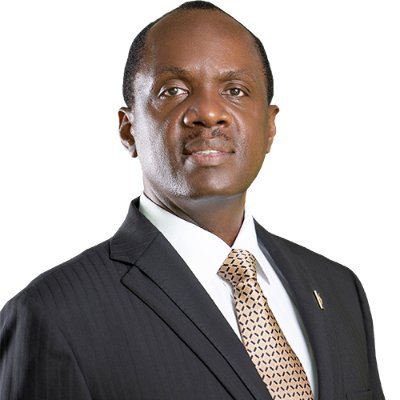No genuine business thrives in Uganda?
Many Ugandans think that unless you are a thief, no genuine business thrives in Uganda. That is why a man like Patrick Bitature is in the news. Besides, reflect on how many Ugandans that have lost their buildings to banks and money lenders.
Now, in the wake of Bitature’s current woes, it’s good to reread this article published on May 23, 2020. The Economist magazine published a story, with a closer focus on Uganda, concluding that “Africa’s banks are the most profitable in the world while also being the least efficient.”
Think about the paradox of being the “most profitable” but “least efficient.” How do they manage to reconcile that? How the heck did banks in [allegedly poor] sub-Saharan Africa become the most profitable in the whole world? Yes, in the whole world.
Now, dwell on interest rates. Not the economies in which these banks operate, neither the investments and businesses they are involved in.
With interest rates ranging between 12 per cent and 30 per cent, these banks, The Economist noted, make over 17 per cent return on equity.
What this British magazine did not say was that these inefficient but very profitable banks were actually, in many ways, a bunch of thieves who have marshalled the legalese to steal the sweat, toil and resources of Ugandans.
By implication, The Economist magazine also meant to say, no business—started from scratch—thrives in Uganda. This environment is designed to crush native invention. Unless they are not paying taxes, bills such as electricity, rent and other running costs, no business thrives. Not even farming.
Maybe Middle Eastern slave networks.
You cannot do business if the bank takes back 15 per cent of the premiums. That is more than the profit margin on any premiums. This could have been a problem with Patrick Bitature.
It actually means the bank takes back all the profits and, at best, the businessperson can only keep appearances – and of course survive with a small balance but not enough to turn the business into a multi-million enterprise.
In truth, many seemingly successful businesspersons in Kampala are only keeping appearances. But these folks are broke, with businesses on life support. A vivid eample is Bitature, who is still in news.
In Europe, the highest interest rate would be two per cent but mostly it is down to even 0.4 per cent.
And sadly, the reason for high interest rates in Africa is simply racist and colonial.
Simply put, banks “do not trust Africans.” Banks have endlessly argued that most of the hefty percentages go into “servicing” the loans, whatever that means.
These all Mzungu banks sustain this reasoning with violence and blackmail. See, in 2016, The Economist reported, Kenya tried capping commercial-loan rates at four percentage points, which was above the central bank’s policy rate. But “the move backfired. Bankers slashed credit to small businesses, reasoning that the rewards of lending no longer matched the risks.”
But the exorbitant interest rates actually keep many small businesses from even approaching these banks. Bitature attempted to use a shortcut, but it dawned on him.
To appreciate the deep-seated racism and deceptiveness of these high interest explanations, you need to know that in Uganda, for example, the present banks have worked tirelessly – of course with the support of our comprador- in-chief – to make sure that no native bank thrives in Uganda.
Centenary bank is just stubborn. That is because local banks allegedly mess up the market. Because they do not have this trust nonsense. Presently, one of the biggest pandemics in Uganda is properties being taken over by banks. You have seen those many signs all over the country, “property of bank so and so.”
At the earliest opportunity, these banks leave the borrower more impoverished than they found them. Yet, they knew ahead that you were not going to make it any far. And as lawyer Isaac Semakadde recently demonstrated with the Basajjabalaba case, these banks work, often in collusion with Bank of Uganda, which issues a “letter of comfort,” to even steal taxpayers’ money.
My point is this: if you ever tune in to listen to a business motivational speaker— not a theorist like myself, but a guy with a public profile who has allegedly come to speak from experience—please remember to ask them about their friendship with the government of President Museveni.
Also recall to ask them about the colour of their skin if they are white or coloured (if they are Chinese or Indian), and their names and ethnic affiliations if they are native. I know, you might come off a little creepy for asking these questions, but beyond this, there is nothing more.
If you are passionate enough, you really want openness and genuine learning. Ask them if the businesses are actually theirs or if they are employees of someone else. Under a Museveni presidency, these things matter. They are the business themselves.
If this motivational speaking businessman (they are normally men) is unwilling to honestly reflect on these things or is simply uncomfortable even telling lies about them, please do not listen.
Because look, there is a lot of money floating around our undoubtedly rich African countries. But to access these monies, or avoid being squeezed out of a small business, one has to have their colour, ethnic, and connections game right.
For men and women “winning” government tenders on end, (the biggest monies are here); former and present employees of big government offices; politicians, or investors gifted to free land, tax exemptions, etcetera, these are not businessmen from whom one picks business lessons.
These are beneficiaries of patronage, smaller thieves, business film-stars simply luckier than their compatriots.
Even if you encountered a random chap thriving on loans in Uganda, ask them the whole truth. That’s because clearly, the system is designed against them.
If prospective local bankers cannot start banks and thrive, why the delusion that collapsing businesses collapse because of laziness or some non-smart business behaviour? Which businessperson would be more careful, more funded, experienced and better prepared than a prospective banker?

